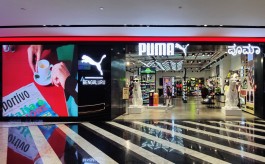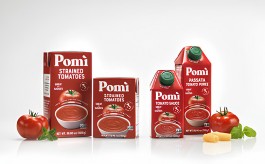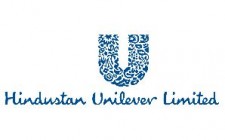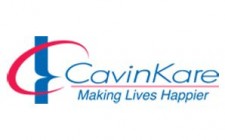Food drives the ITC truck
July 01, 2015
The cigarette major's food business is powering its FMCG thrust, giving new character to an old conglomerate
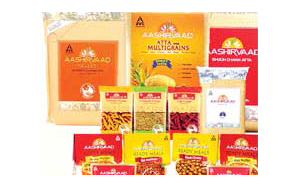 When ITC declared its results for the last quarter of the year ended March 2015, the numbers seemed to ratify a long-held street expectation: it would have to increasingly depend on non-cigarette FMCG brands for growth. What was also amply clear was that within the FMCG family, food, especially biscuits and flour, was shaping up into a star performer with the personal care portfolio slowly gaining ground.
When ITC declared its results for the last quarter of the year ended March 2015, the numbers seemed to ratify a long-held street expectation: it would have to increasingly depend on non-cigarette FMCG brands for growth. What was also amply clear was that within the FMCG family, food, especially biscuits and flour, was shaping up into a star performer with the personal care portfolio slowly gaining ground.For three quarters in a row in FY 2015, the cigarettes business showed negative to marginal growth while the non-cigarette FMCG portfolio grew at a steady clip of 10-12 per cent. With some 20-odd brands in its kitty, the non-cigarette FMCG segment clocked Rs 9,038 crore as revenues in the current financial year, growing almost 11 percent. It had grown by 13.7 per cent the previous year.
The FMCG business has attained significant scale over the last 10 years - the share has risen to 27 percent of ITC's total revenues in FY 2015 from 1 percent in 2002. More than half of ITC's revenues come from non-cigarette brands; of this FMCG commands a handsome share and within that, food plays a critical role.
Within the foods segment, the company targets premium customers. In 2001 it entered the business with ready-to-eat brands Kitchens of India. The foods business is close to Rs 6,000 crore in FY2015 according to industry estimates. The company has also increased its market share in biscuits and snacks in the last few years, despite competition from well-entrenched players like Britannia, Parle Products and PepsiCo. While Britannia is a clear leader with around 30 per cent share in the Rs 27,000 crore biscuit market, ITC leads the cream biscuit segment with 27 per cent. ITC recently migrated its popular range of cream biscuits under a new sub-brand 'Bounce' which is the largest cream brand in the industry. "ITC's strategy of targeting the premium segment paid off in cream biscuit category, however cookie still remains Britannia's turf," says an analyst.
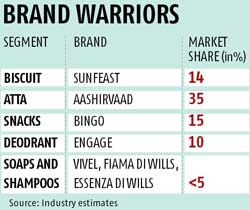 ITC's sourcing integration is its strength. "Paper business helps address its large packaging needs, the agri-business provides strategic support to the cigarette and branded packaged foods businesses by ensuring high quality supplies," Abneesh Roy, associate director, institutional equities, research, Edelweiss wrote in a report. The company also credits its strong distribution network which has helped the brands gain volume and value. Currently, two ITC brands - Aashirwad and Sunfeast - are over Rs 2,000 crore each in terms of annual consumer spend.
ITC's sourcing integration is its strength. "Paper business helps address its large packaging needs, the agri-business provides strategic support to the cigarette and branded packaged foods businesses by ensuring high quality supplies," Abneesh Roy, associate director, institutional equities, research, Edelweiss wrote in a report. The company also credits its strong distribution network which has helped the brands gain volume and value. Currently, two ITC brands - Aashirwad and Sunfeast - are over Rs 2,000 crore each in terms of annual consumer spend.In the branded packaged wheat flour segment, ITC is the market leader with more than 35 per cent share. Shakti Bhog Atta is a distant second at 12 per cent according to market consulting firm Ikon Marketing Consultants. The savoury snacks segment remains a weak link in an otherwise successful story. "ITC's wafers brand Bingo has 15 per cent market share while Pepsico's Lays has 40 per cent," said the analyst.
The company has recently forayed into the Rs 1,100 crore branded juice market through its B-Natural brand. "ITC, on the back of strong investment behind the brand and success in the food space, will gain market share. Launch of differentiated juice flavours will be a key," said Abneesh Roy. Trade sources indicate that the company's cash flow from cigarettes has permitted it to invest heavily in food businesses. "No other company has invested such sums of money in a single segment across categories," said an executive of a rival FMCG company.
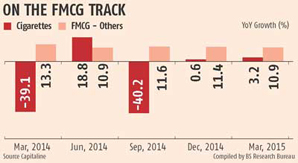 While food remains a success story, the challenge is the personal care portfolio pegged at around Rs 1,500 crore. While ITC has been stuck with 2-3 per cent market share in shampoos, in soaps, it is estimated to have a share of 4 per cent, according to analysts. In newer segments such as deodorants, it is estimated to have about 9-10 per cent with Engage beating rivals like Axe (HUL) and Wildstone (McNROE). The company acquired Savlon and Shower to Shower personal care brands from J&J last week, for an estimated Rs 180-200 crore to ramp up its play in the health care category where it will compete against Reckitt Benckiser's Dettol. "These acquisitions, while being small, have potential to be a success story," says Roy of Edelweiss. The rest of ITC's FMCG portfolio, including agarbattis (incense sticks) safety matches, education & stationery products and apparel, is not large and contributes about Rs 1,500 crore to its total non-cigarette FMCG revenue
While food remains a success story, the challenge is the personal care portfolio pegged at around Rs 1,500 crore. While ITC has been stuck with 2-3 per cent market share in shampoos, in soaps, it is estimated to have a share of 4 per cent, according to analysts. In newer segments such as deodorants, it is estimated to have about 9-10 per cent with Engage beating rivals like Axe (HUL) and Wildstone (McNROE). The company acquired Savlon and Shower to Shower personal care brands from J&J last week, for an estimated Rs 180-200 crore to ramp up its play in the health care category where it will compete against Reckitt Benckiser's Dettol. "These acquisitions, while being small, have potential to be a success story," says Roy of Edelweiss. The rest of ITC's FMCG portfolio, including agarbattis (incense sticks) safety matches, education & stationery products and apparel, is not large and contributes about Rs 1,500 crore to its total non-cigarette FMCG revenueWay back in 1996, when Y C Deveshwar took charge of ITC, the environment for tobacco business was becoming increasingly difficult. He decided to derisk the company's business model and transform it from a cigarette maker to an FMCG company. At that time the move was opposed by the parent company. But today as the 68-year old veteran chalks up an ambitious plan of turning the FMCG business into a Rs 1-lakh-crore portfolio in the next 15 years, there is little doubt that he did choose the right track.
Advertisement

